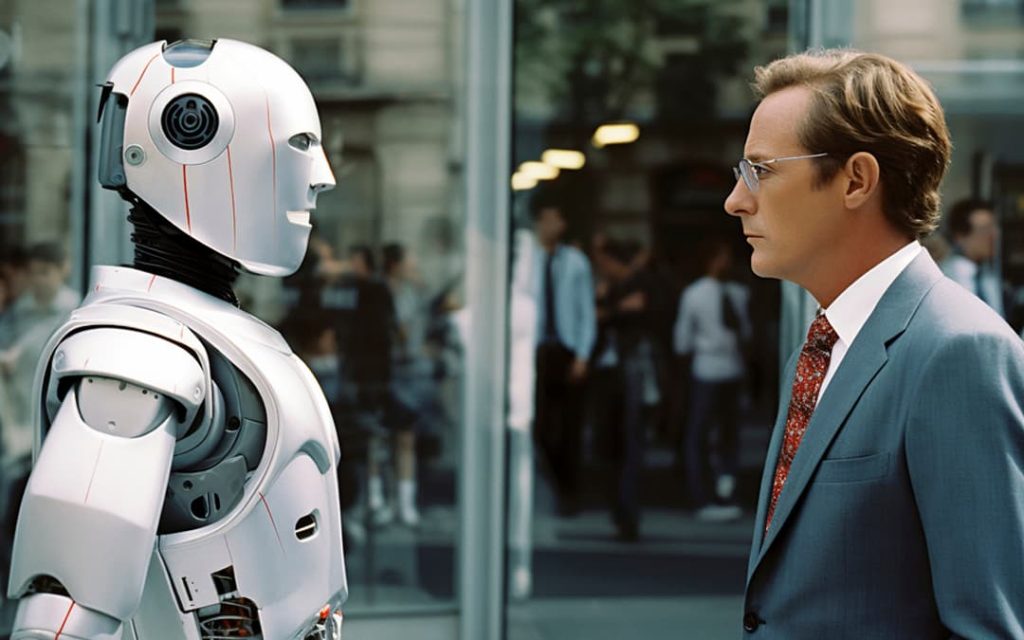Artificial Intelligence is no longer science fiction—it’s now a core part of everyday life. From customer service chatbots to AI doctors assisting with diagnoses, industries worldwide are experiencing rapid change.
But with this change comes a pressing question: which jobs are at risk—and which careers remain safe in 2025?
📉 Jobs Most at Risk of AI Automation
AI thrives in areas where repetition, data processing, and speed are critical.
- Data Entry Clerks
- Routine typing and number processing are now fully automated.
- Customer Support Agents
- AI chatbots and voice assistants handle basic inquiries.
- Retail Cashiers
- Self-checkout kiosks and mobile payments reduce demand for human staff.
- Basic Accounting & Bookkeeping
- AI software like QuickBooks AI automates most entry-level tasks.
- Transportation Drivers (partially)
- Self-driving vehicles are expanding, though regulation slows full adoption.
👉 In short, jobs that are predictable, repetitive, and rules-based are the most vulnerable.
📈 Careers Thriving in the AI Era
Not all jobs are disappearing—many are adapting and thriving alongside AI.
- AI & Machine Learning Specialists
- Designing, training, and maintaining AI systems.
- Cybersecurity Experts
- Protecting data and preventing AI-driven cyber threats.
- Healthcare Professionals
- Doctors, nurses, and therapists use AI as a support tool, not a replacement.
- Creative Professions (Writers, Designers, Filmmakers)
- AI assists with ideas, but human creativity, emotion, and originality remain vital.
- Teachers & Educators
- AI provides tutoring, but real teachers guide, inspire, and mentor students.
- Skilled Trades (Electricians, Plumbers, Carpenters)
- AI can’t fix your wiring or plumbing—hands-on skills remain in demand.
👉 Careers requiring human judgment, empathy, and creativity remain safe.
🧠 Why Some Jobs Are Safer Than Others
Jobs safe from AI share common traits:
- Human Connection: Therapists, teachers, and caregivers rely on empathy and trust.
- Complex Creativity: Storytelling, design, and invention need human imagination.
- Physical Skills: Construction, plumbing, and emergency services can’t be fully digitized.
- Strategic Thinking: Leadership roles demand vision and nuanced decision-making.
🔮 The Future of Work: AI + Humans
Instead of humans vs AI, the future looks more like humans + AI.
- Doctors use AI for faster diagnoses.
- Lawyers use AI to review contracts.
- Writers & Journalists use AI for research and editing.
- Entrepreneurs use AI tools to scale businesses.
👉 The winners will be those who learn to work alongside AI rather than resist it.
📊 Jobs at Risk vs Jobs Safe (2025 Snapshot)
| Category | At Risk ⚠️ | Safe/Thriving ✅ |
|---|---|---|
| Office Work | Data entry, clerks | Managers, strategists |
| Customer Service | Call center agents | Customer relationship managers |
| Transportation | Drivers (partially) | Logistics & fleet managers |
| Finance | Bookkeepers | Financial advisors |
| Healthcare | Basic diagnostics | Doctors, nurses, therapists |
| Education | AI tutors | Teachers, professors |
| Creative Industries | Stock image creators | Storytellers, designers |
Final Thoughts
AI is not here to take every job—but it is reshaping the workforce. In 2025, the safest careers are those built on creativity, empathy, adaptability, and physical skills.
👉 The key to staying relevant isn’t avoiding AI—it’s learning how to use it as a tool.
Those who adapt will not only stay employed but thrive in the AI-powered future of work.
FAQs
1. Which jobs will AI never replace?
Jobs needing empathy, human creativity, and physical presence—like doctors, teachers, and skilled trades.
2. Will AI take over 100% of jobs?
No. AI automates tasks, not entire industries. Many roles are being augmented, not eliminated.
3. How can I future-proof my career?
Learn AI tools, critical thinking, creativity, and emotional intelligence.
4. Is it too late to switch careers in 2025?
Not at all—fields like AI, cybersecurity, and healthcare are growing rapidly.
5. What’s the best mindset for the AI era?
See AI as a collaborator, not a competitor.
READ ALSO:AI in Education: How Schools in the USA Are Using ChatGPT
